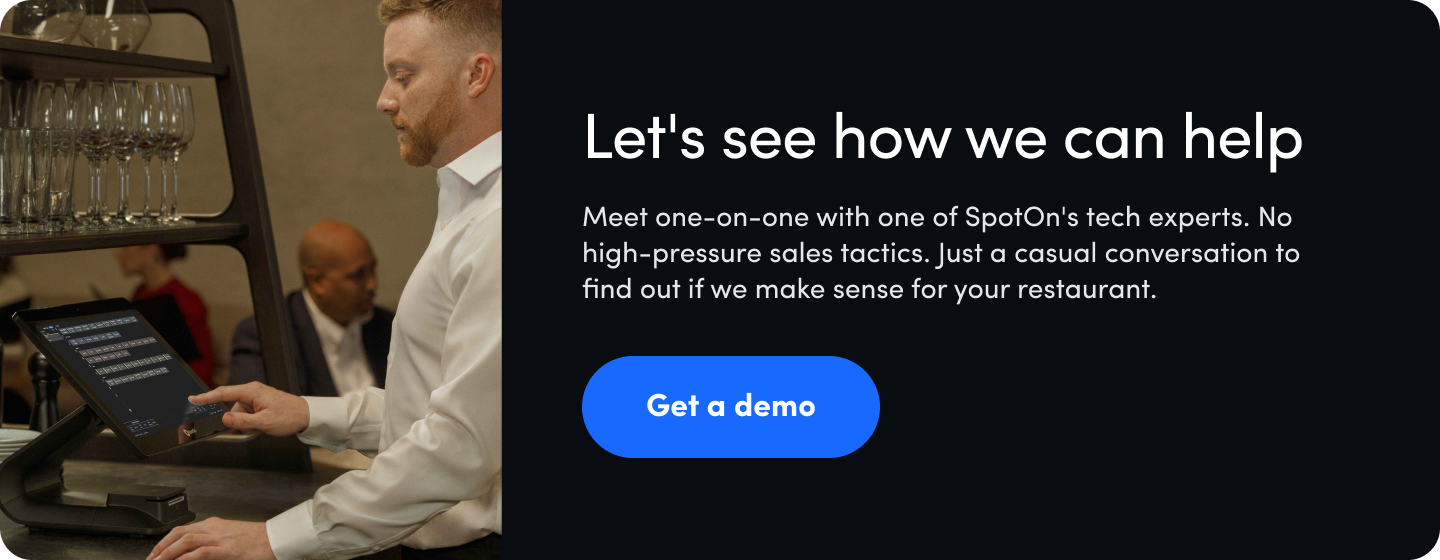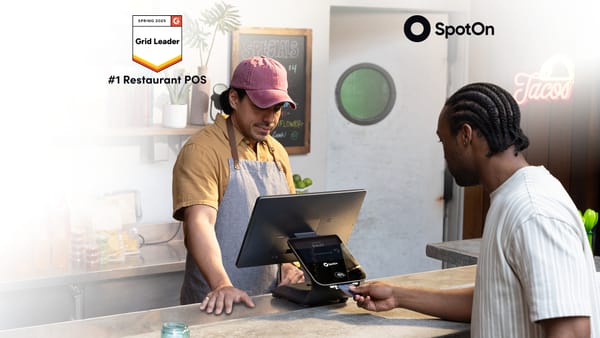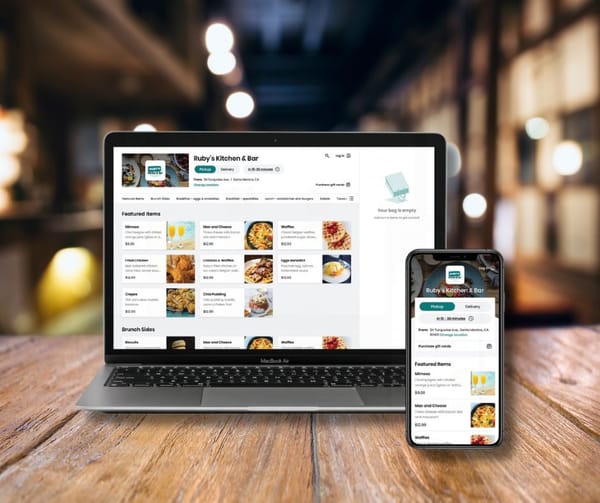Turning the Corner is a new series from SpotOn Restaurateur-in-Residence Scott Youkilis. Find mindful advice on all aspects of the restaurant business—the good, the bad, and the expletive-inducing, from someone who has been there before.
I got into the restaurant industry because I wanted to throw a party every night, and I thought I could make a lot of money doing it. Cooking with the best seasonal ingredients, pouring locally made wines and spirits, and creating memorable life experiences were my passions. Little did I know at 16 years old, when I first dreamed of owning a restaurant, that I’d spend more time worrying about paying vendors, managing cash flow, building a tech stack, or restaurant management.
After opening my first restaurant, I quickly realized that I had to start delegating tasks and assigning responsibilities to my managers. I was never going to take a day off unless my managers took ownership of running the restaurant on their own. This approach was advantageous for both of us. It allowed me to manage my workload and provided an emergency backup—I wasn’t the only one who knew how to do something. For my team, it meant feeling empowered, expanding their skills, and creating new opportunities for career advancement.

Looking back, we had some great managers who went on to open their own restaurants and are still successful today. Of course, I also made some mistakes along the way. From filling roles too quickly to hiring underqualified managers, my restaurants performed the poorest when my restaurant management team was weakest.
Taking the time to find the right people who fit the culture or promoting from within created a winning solution. The teams that loved working together always produced the tastiest food and cocktails and made the restaurant profitable.
Here are some tips on how to pick the best managers, align with the mission, and keep them on board for years to come.
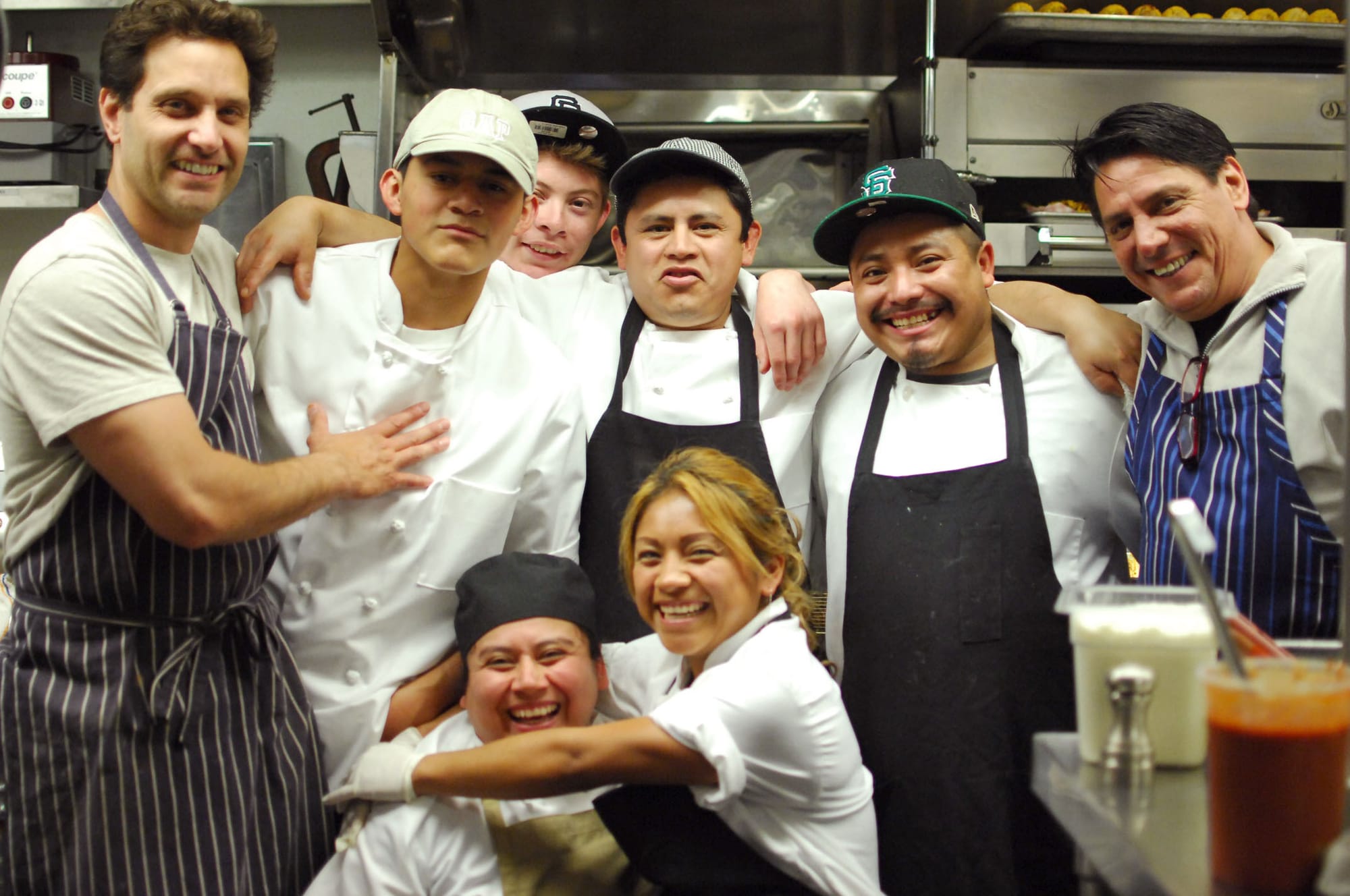
Restaurant management tips for restaurant owners
1. Hire the right candidate
Hiring the right restaurant employees is hard work, and excellent restaurant managers aren't easy to find. However, there are a few steps you can take to identify the right person for the job.
First, create a clear job description. List all responsibilities and be transparent about the day-to-day tasks and experience needed to succeed. Avoid piling on extra work after hiring or failing to allocate enough resources for the person to do their job effectively, as this will lead to quick failures and high employee turnover.
The best restaurant managers must be detail-oriented, calm under pressure, and willing to go above and beyond to provide excellent service. It truly is one of the hardest jobs in the restaurant, and it requires a multitude of skills—and not just management skills. Look for someone with serious problem-solving skills who loves challenges, enjoys working with people, and has a passion for hospitality, and you're bound to get the results you need for restaurant management success.
Equipping your manager with the right tools is essential. For instance, provide them with restaurant scheduling software to create employee schedules and comply with predictive scheduling laws. If your restaurant management involves technical skills like data analysis, ensure your restaurant manager has hands-on experience reading reports for restaurant costs, from food costs to labor costs and all the expenses in between. If your manager is new to the restaurant business, be prepared to offer them the one-on-one attention they need to succeed.
Be clear about the challenges and total compensation, and lay out a path for success. This approach will help you foster a healthy, long-term relationship with your manager.
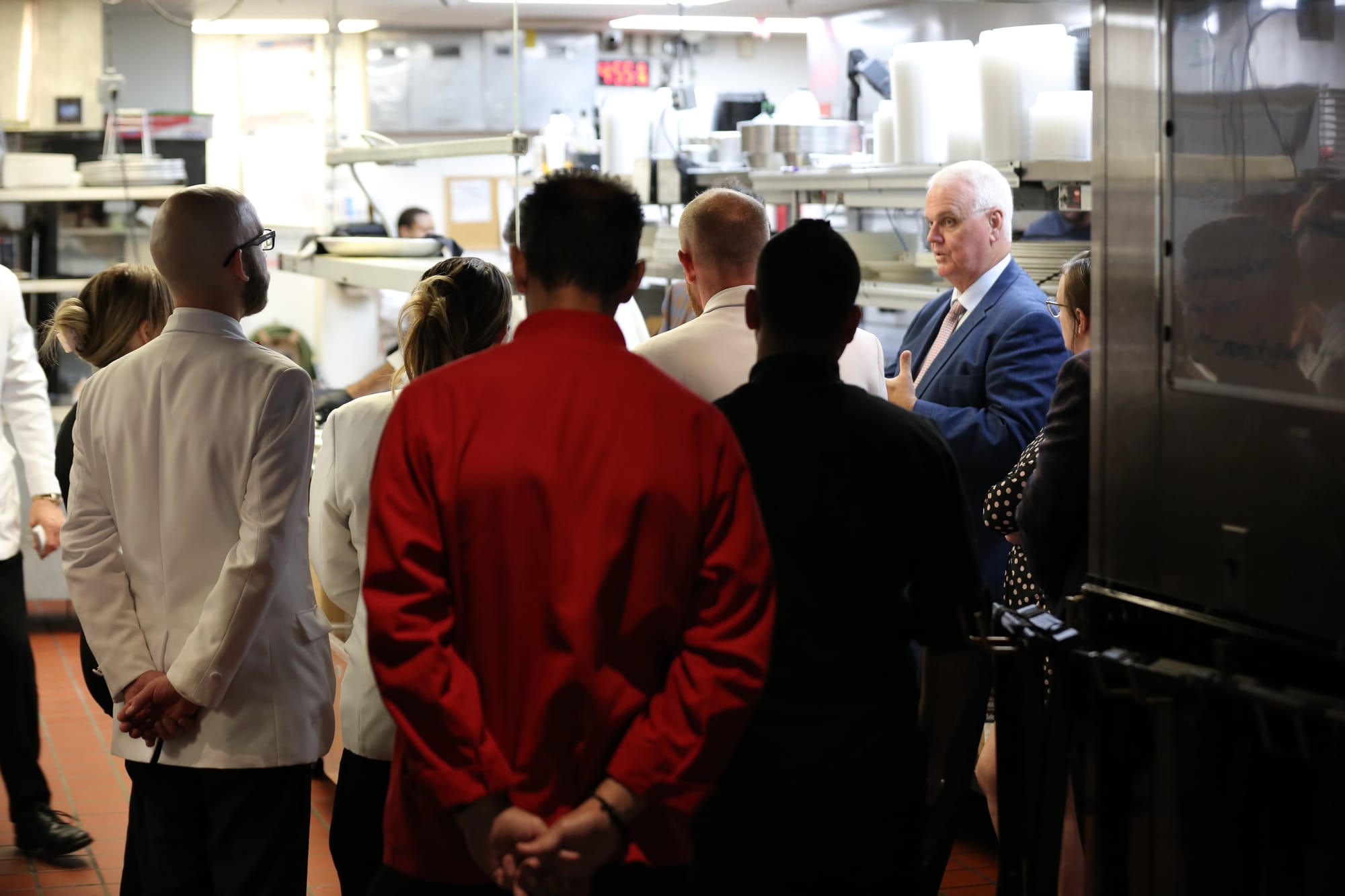
2. Prioritize the guest experience
Successful restaurant operations prioritize excellent customer service. The customers' experience should be at the top of every great manager’s list of responsibilities. More importantly, your managers need to train the restaurant staff to be attentive and responsive to your guests' needs.
From handling customer complaints and unpredictable customer interactions with a positive attitude to exceeding customer expectations, your restaurant manager should make guests feel valued from the moment they enter the restaurant until they leave. Personal touches, like remembering your guests' names and preferences, will build a loyal customer base, increase customer satisfaction, and keep them coming back. Experimenting with loyalty programs and customer loyalty software can also help achieve this.
3. Create a positive work environment and culture
Owners can't create a positive culture by themselves. To maximize employee satisfaction and create a great workplace, owners need their managers to build (and sustain) a culture that inspires employee retention.
As labor costs continue to rise, reducing turnover and retaining your staff will drive profitability and maintain a great working environment. It will mean less time (and payroll costs) spent on training new employees and better working relationships. Furthermore, having a consistent group of satisfied employees helps deliver better service, more delicious food, and repeat business.
4. Lead by example
Running a restaurant requires long hours on your feet and lots of elbow grease. If you’re not willing to do the dirty work, why should your managing staff? And, when you’re not around, are your managers leading by example?
It’s extremely important to set the tone when you’re at your restaurant and have your managers follow your lead when you’re not. Delegate tasks and responsibilities that you’re willing to do, and your team will respect you and the business (and do the hard work to make it successful).
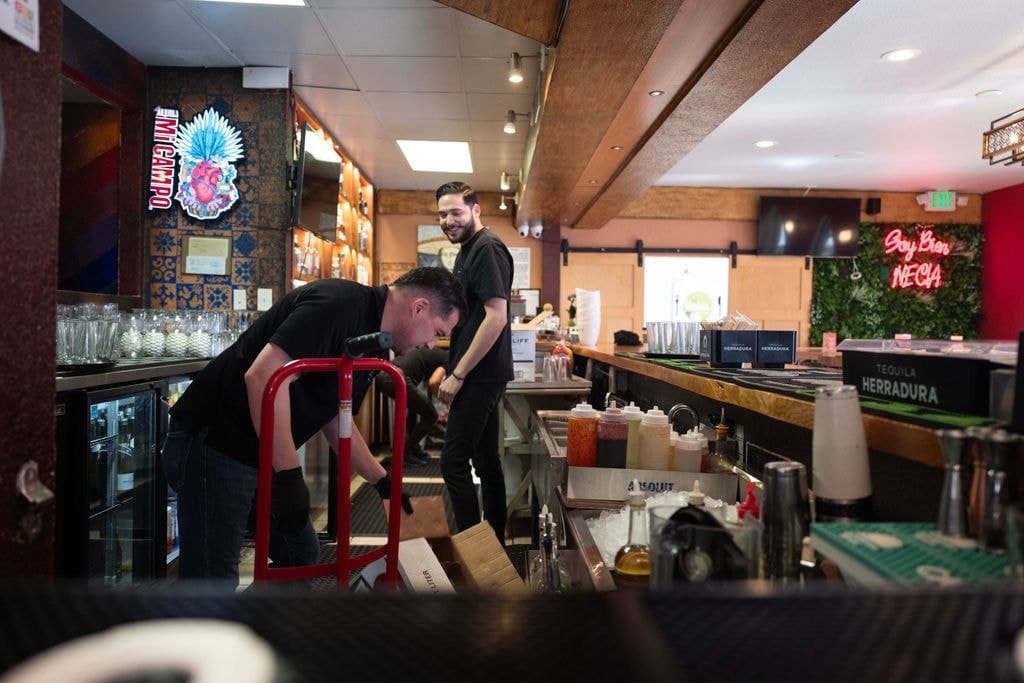
5. Meet to talk about the future
If you’ve set your day-to-day operations up properly, there will be times when you are not physically in the restaurant. This is when a great restaurant manager shines and thrives. Things may not go to plan, but it's the manager's job to handle the daily restaurant operations and find opportunities for improvement.
Schedule regular time with your restaurant managers to learn about these opportunities and gain a deep understanding of your kitchen and front-of-house staff members' challenges. Good listening skills go a long way. These meetings will not only improve your business but also strengthen your relationship with your managers.
My weekly meetings with managers always started with guest feedback. What are you hearing from the guests on the floor and at the bar? We would review the online reviews together and ensure we were on the same page about what was killing it and what needed to be killed.
Next, we would pull out the reports to see if our intuition matched the data. Who was selling the most cocktails? Which server made the most tips? Why were there so many discounts? Was anyone consistently clocking in late? We addressed all “people” issues first to ensure management and ownership were aligned and to stay clear-eyed about our business goals.

Finally, we'd brainstorm new ideas. From restaurant marketing campaigns to new menu items, this was our time to revel in the fun part of the business. What could we do to separate us from our competitors? How much were people willing to pay for similar menu items at other restaurants? We thrived on creating new events to help drive more profits and give people reasons to come back.
6. Stay focused on food quality
Your strengths are likely serving great food and beverages. Does your manager possess the same standards?
Managers should constantly check mise en place, taste final dishes to ensure consistency and see that they match the menu descriptions and website images. It’s common for a restaurant's menu to devolve over time without regular oversight. Make sure that your managers are ordering and prepping properly to maintain target food costs, present visually appealing dishes, and encourage repeat business.
7. Don't forget cleanliness and ambiance
The saying "you don't get a second chance at a first impression" rings especially true in the restaurant industry. First impressions of your restaurant inform guests of the dining room service and cuisine. A bad one can tank the customer experience and ward away new customers.
Professionalism and attention to detail are crucial to a great first impression. These qualities are consistent across restaurant industry leaders and signal to guests that the service and food will be top-notch. Make sure your managers maintain the dining areas, kitchen, and restrooms to reflect your brand, improve operational efficiency, and maintain a reputation as one of the best restaurants in town.
Restaurant management isn't easy. Celebrate the wins.
While no one ever cared more about my own restaurant than I did, it helped to have a committed staff—from the back office to the back-of-house to the front-of-house—to weather the long hours with me.
Sharing the workload allowed me to assess the business from the highest level and focus on other areas of the restaurant business that my managers weren't held accountable for. Great restaurant managers give you back crucial time in your day by handling the day-to-day operations, enabling you to reallocate that time to tackle the big challenges keeping you up at night.
Ultimately, the best restaurant management tips boil down to hiring the best person for the job, supporting them with ongoing training and resources, and celebrating their success. Restaurant management is a daunting task, not for the faint of heart. Celebrate and reward the people tough enough to do it alongside you.
Meet the author

Scott Youkilis is a restaurateur in residence at SpotOn. As a chef and owner, he's opened four award-winning restaurants in San Francisco, including Maverick and Hog & Rocks. Now, he helps restaurant owners everywhere become more profitable with better tech.
